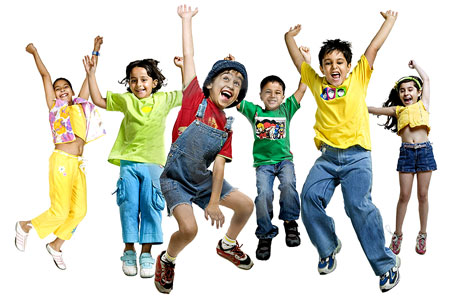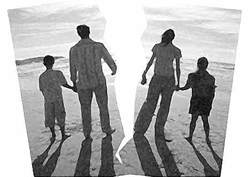Children and polyamory- the thought bothers some people while others see no issue. In the previous article, we started looking at how polyamory could impact children. Let’s look at the research findings closer.
The study broke down the data into two parts: those that practice non-monogamy within a family unit and those that practice outside the family unit.
Outside the family unit was considered swingers and those who dated but did not try to incorporate them into the daily family unit. Such families tended to keep their activities private. They didn’t tell the kids what they did in private or outside the home. As far as the children were concerned, their parents lived a “normal” life. There was little or no impact on the kids. Being polyamorous would not impact the children if they did not know their parents were poly.
Polyamorous people who practiced a non-private polyamorous lifestyle, at least in regards to their children knowing, could impact the kids. These families either incorporated or attempted to incorporate partners into their daily lives. This could either be through partners becoming life partners and living with the family or through dating other partners and bringing them into contact with the children. “Some individuals in polyamorous relationships with children involve all or some of their partners in their children’s lives, either through co-parenting or with the partners taking on roles similar to those of aunts or uncles in American culture (i.e., non-obligatory bonds between the partner and the children).” Basically, they married their partners and added new moms and dads to the family or they brought their boyfriends and girlfriends around. In positive situations, boyfriends and girlfriends would bond with the children in the same way that an aunt or uncle would. Pros and cons were listed.
Pros listed for children:
- Children had more individual time with adults.
- Children spent less time in day care because of the flexibility of having multiple parental figures involved in their lives.
- Diversity of interests available from adult figures that helped children foster a wider variety of hobbies and skills.
- Children were being raised in a sex-positive environment
- The parenting situation allowed children to see their parents as real people, promoting honesty between children and parents
- Children stated that they felt more “loved, safe, and secure”
Cons listed:
- Children who bonded with their new parents or partners experience emotional trauma when the adults split and the additional partners leaves. It is important to note, that they similar trauma occurs in monogamous families where infidelity occurs.
- Difficulty with departing partners maintaining relationships with children
- Being aware of being in an “alternative” lifestyle than other children. Another note is that children stated that though they knew they were in alternative lifestyle, they were not questioned or bothered by other adults (school officials, ect.)
- Possibility of being stigmatized.
 An interesting thing that came up: some adults may have issues with partners that they separated with (in under less than ideal situations) seeking to maintain relationships/friendships with their children. The children on the other hand saw this as a plus, seeing their relationship with the departing partners as separate than the parent’s relationship with the departing partner.
An interesting thing that came up: some adults may have issues with partners that they separated with (in under less than ideal situations) seeking to maintain relationships/friendships with their children. The children on the other hand saw this as a plus, seeing their relationship with the departing partners as separate than the parent’s relationship with the departing partner.
Ultimately, the study showed that polyamory was not worse for the kids. Monogamy could have positive AND negative impact on the children. In the same way, polyamory could have positive AND negative impact on children as well. Polyamory was not found to be inherently bad for kids and could have positive impact on them.
Polyamory is not inherently bad for the kids in your family. It all depends on you and how you handle your relationships and family. Always consider that when considering polyamory.

Well…this seems more than a little wishful.
As a single mom, I have certain protections. A divorce decree, a legally enforceable visitation schedule, state-mandated child support etc. There’s one guy involved, which means I chase one person, not two or three, for enforcement if he’s being hinky or slow.
Believe it or not, adults are not interchangeable in children’s lives, so a “well, as long as someone shows up” notion about custody is hurtful. If I were part of a poly family and we broke, I’d need to be coordinating schedules for *all* of us. And if all those involved were actually parental figures, *all* would have to be willing to step up financially. And we would *all* need to be committed to getting along to finish raising the kids after the split. Otherwise it’s just irresponsible adults drifting through, which isn’t a good thing in a kid’s life.
Raising children after divorce is *hard*. It’s hard for two, re-coupled or not. Raising children after a poly split might involve six or eight adults, or more, and they’d all need to be committed to behaving well and being there in practice, regularly, for the kids.
My guess is that the research that’s being done is done on intact poly families, not families after the split. I’d also guess that after most splits, the kids go off with the biological moms, who retreat to their own coupled families for practical, emotional, and financial support. At which point suddenly they kids taken out of a wash of “big and poly is great” propaganda, and feel profoundly lonely, with nothing to help them in the transition. More than most kids, I bet they feel they’ve lost their families, including siblings.
I’d say that if you want lots and lots of people in a kid’s life, better to stick close to your family. They might annoy or take off, but in the end they’re unlikely simply to disappear.